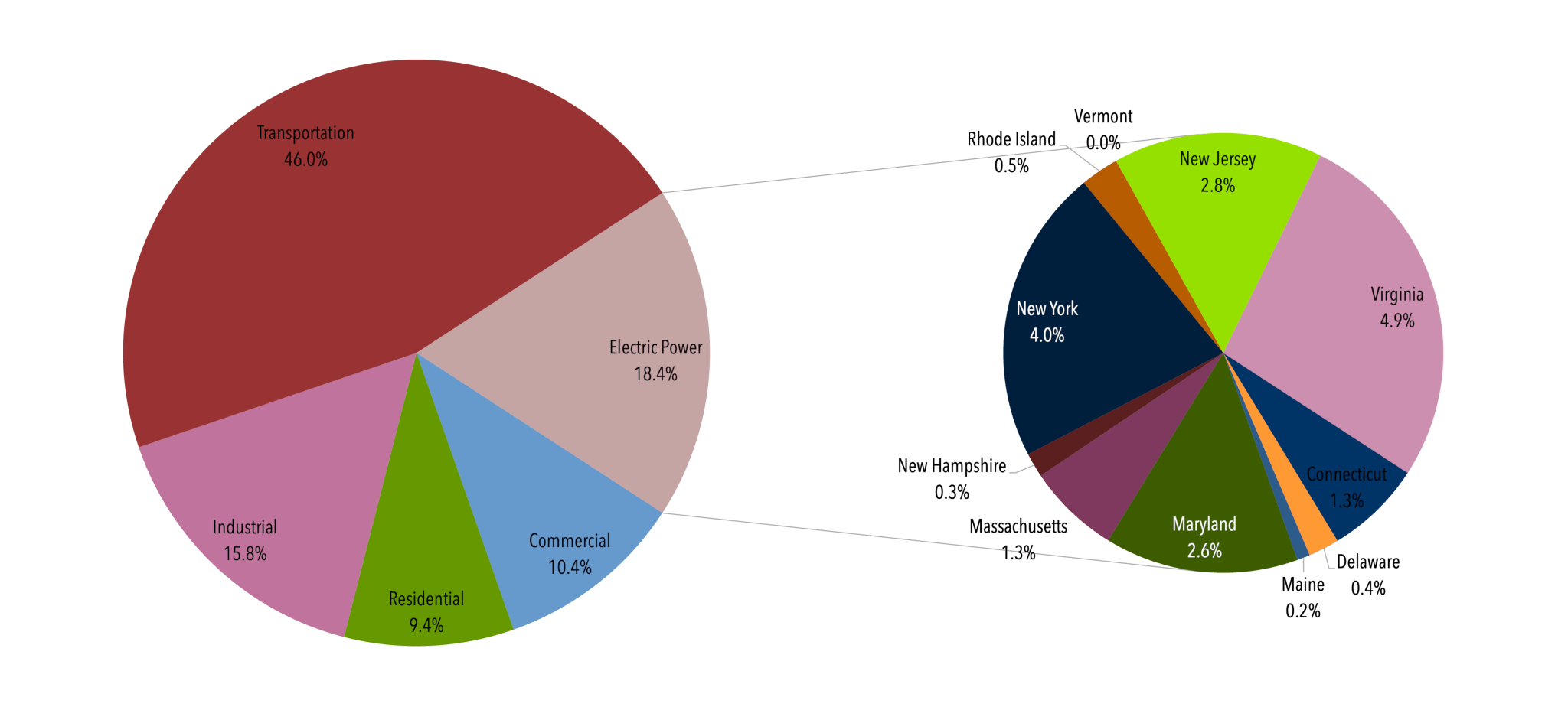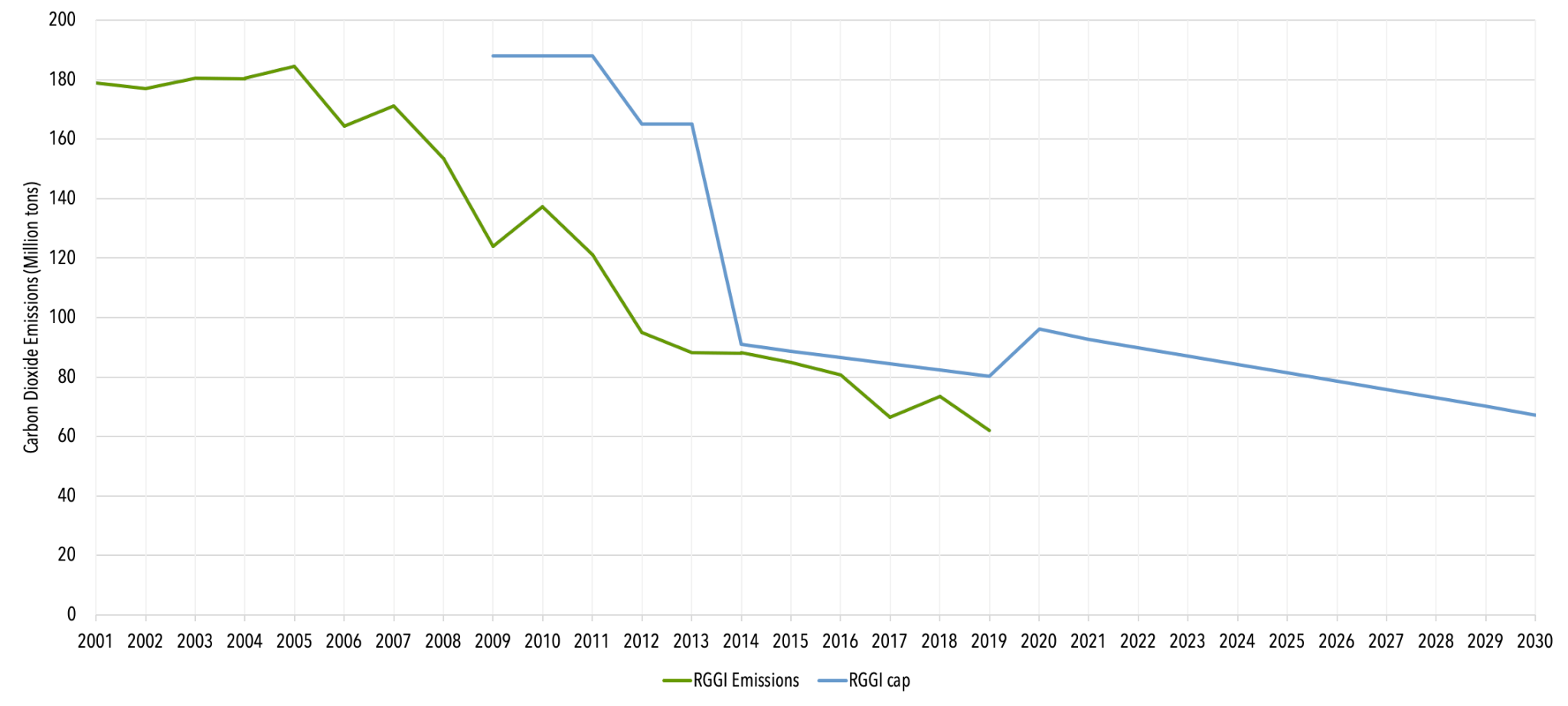The Regional Greenhouse Gas Initiative (RGGI) is the first mandatory cap-and-trade program in the United States to limit carbon dioxide from the power sector. Eleven states currently participate in RGGI: Connecticut, Delaware, Maine, Maryland, Massachusetts, New Hampshire, New Jersey (withdrew in 2012, rejoined in 2020), New York, Rhode Island, Vermont, and Virginia. In 2019, Pennsylvania Gov. Tom Wolf directed the state’s Department of Environmental Protection to develop regulations for the state to join RGGI, and the state is expected to join in 2022.
RGGI was established in 2005 and administered its first auction of carbon dioxide emissions allowances in 2008. The annual average CO2 emissions from RGGI electric generation sources decreased by 48 percent between the base period of 2006–2008 and the period of 2016–2018 (these statistics do not include New Jersey, which rejoined RGGI in 2020). The states have set a goal of further reducing emissions 30 percent below 2020 levels by 2030.
RGGI requires fossil fuel power plants with capacity greater than 25 megawatts to obtain an allowance for each ton of carbon dioxide they emit annually. Power plants within the region may comply by purchasing allowances from quarterly auctions, other generators within the region, or offset projects. Between 2009–2017, RGGI states have seen a net economic benefit of $4.7 billion from the cap-and-trade program.
RGGI History
Program Development and Model Rule
In 2005, the governors of Connecticut, Delaware, Maine, New Hampshire, New Jersey, New York, and Vermont signed a Memorandum of Understanding (MOU) to reduce carbon dioxide emissions within the northeastern and mid-Atlantic region. In 2007, RGGI was expanded to include Maryland, Massachusetts, and Rhode Island. The ten signatory states agreed to be jointly responsible for carrying out the provisions featured in the MOU.


